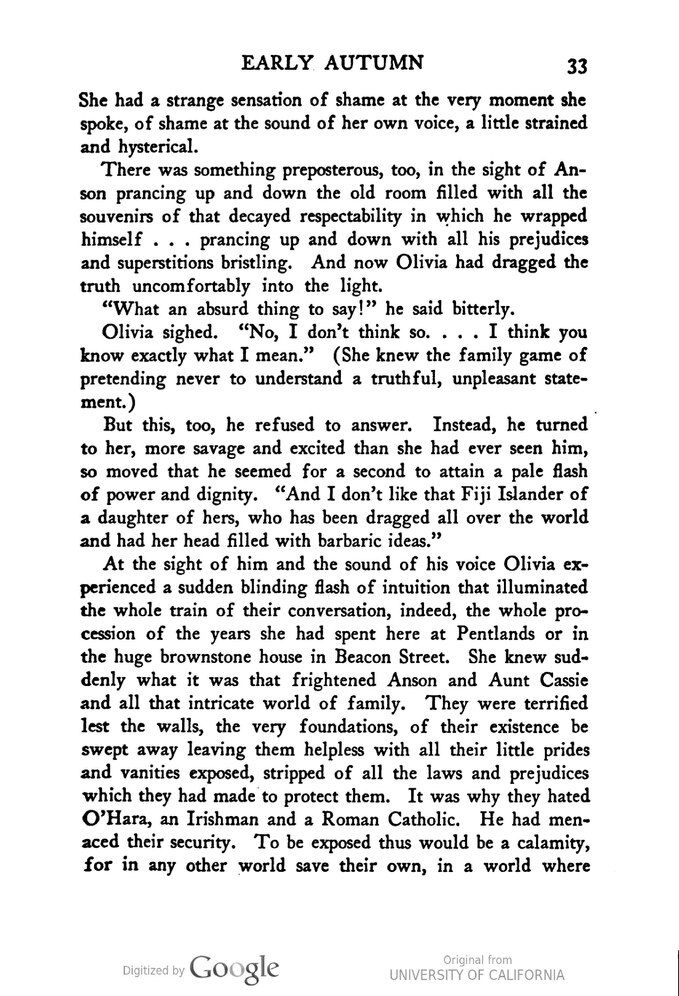She had a strange sensation of shame at the very moment she spoke, of shame at the sound of her own voice, a little strained and hysterical.
There was something preposterous, too, in the sight of Anson prancing up and down the old room filled with all the souvenirs of that decayed respectability in which he wrapped himself . . . prancing up and down with all his prejudices and superstitions bristling. And now Olivia had dragged the truth uncomfortably into the light.
"What an absurd thing to say!" he said bitterly.
Olivia sighed. "No, I don't think so. . . . I think you know exactly what I mean." (She knew the family game of pretending never to understand a truthful, unpleasant statement.)
But this, too, he refused to answer. Instead, he turned to her, more savage and excited than she had ever seen him, so moved that he seemed for a second to attain a pale flash of power and dignity. "And I don't like that Fiji Islander of a daughter of hers, who has been dragged all over the world and had her head filled with barbaric ideas."
At the sight of him and the sound of his voice Olivia experienced a sudden blinding flash of intuition that illuminated the whole train of their conversation, indeed, the whole procession of the years she had spent here at Pentlands or in the huge brownstone house in Beacon Street. She knew suddenly what it was that frightened Anson and Aunt Cassie and all that intricate world of family. They were terrified lest the walls, the very foundations, of their existence be swept away leaving them helpless with all their little prides and vanities exposed, stripped of all the laws and prejudices which they had made to protect them. It was why they hated O'Hara, an Irishman and a Roman Catholic. He had menaced their security. To be exposed thus would be a calamity, for in any other world save their own, in a world where
